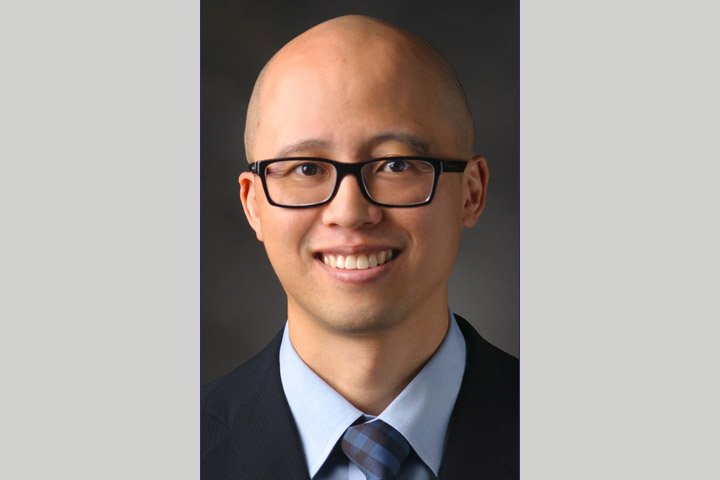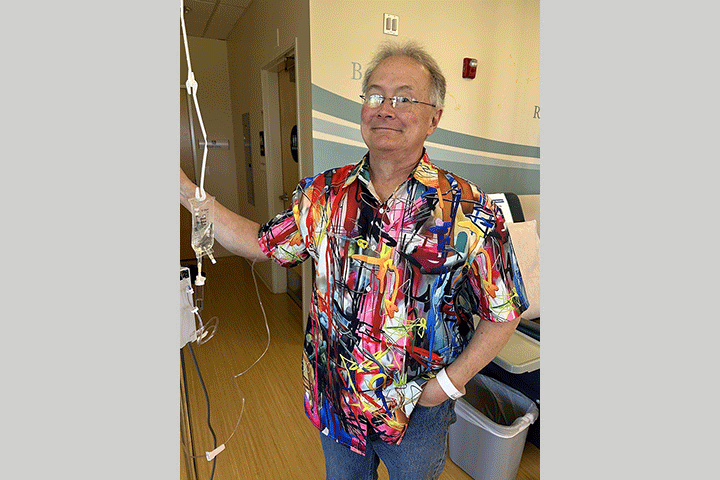Platform Trial Design Aims to Get Information Quickly and Efficiently

There’s really little doubt that double-blind, randomized phase II and phase III trials have advanced the care of cancer patients.
But these trials are very labor-intensive, often very expensive, and require significant time to determine whether a new approach is better than the current standard of care.
As scientists have gained a better understanding of the complex biology of pancreatic cancer, what has become very clear is that the disease is not homogeneous. In other words, everyone’s tumor is different. This finding alone has led to a significant investment of research time in personalized medicine, tailoring treatments to an individual. Finding these treatments more quickly is paramount for a disease as deadly as pancreatic cancer, and the large, randomized trial may not be the best strategy in some instances.
That’s why the so-called adaptive platform clinical trial is emerging as a possible alternative to the randomized clinical trial. This trial approach is true to its name, basically allowing researchers to adopt a more flexible approach. This flexibility allows for more planned adjustments of the trial protocol based on interim data. That alone leads to shorter trials with fewer patients. The result: faster testing of the efficacy of potential treatments and quicker identification of a patient population who may or may not benefit from those treatments.
“We have made a promise on progress in pancreatic cancer, but we can’t keep doing things the same way if we want to keep that promise and make more significant progress in a timely manner,” says Eugene Koay, M.D., Ph.D., associate professor of radiation oncology at the University of Texas MD Anderson Cancer Center (Houston). “We haven’t made progress fast enough both in early-stage or late-stage disease.”
Koay is leading a platform trial called PIONEER-Panc, which is sponsored by MD Anderson through its Moon Shots Program. “When we first conceptualized PIONEER-Panc, we wanted to make sure that we could get answers quicker, personalize those therapies, and hopefully offer our patients better alternatives,” explains Koay, who is also an assistant member of the Department of Nanomedicine at Houston Methodist Research Institute.
About PIONEER-Panc
This phase II platform trial can evaluate multiple experimental arms against a standard-of-care control arm in patients with pancreatic cancer. Multiple correlative studies for tissue, blood, and imaging are also included in this study to help learn about disease biology and tailoring treatments further.
Patients are separated into three groups: resectable, borderline resectable, and locally advanced disease. Then they are further divided in each stage of disease group based on their treatment histories, such as no prior treatment or previously treated.
Under this design, each cohort has one control arm but may have one or more experimental arms running simultaneously. Within each cohort, adaptive randomization rules are applied and patients will be randomized to either an experimental arm or the control arm. One of the great efficiencies of a trial like this is that the experimental arms of each cohort are only then compared to the applicable cohort-specific control arm. Experimental arms may be added independently to one or more cohorts during the study. In a more traditional approach, all experimental therapies would require their own distinct control arm.
“On the platform trial, experimental arms can be added over time while maintaining the same control arm,” explains Koay. “So you’ll always have the comparator of the control arm, without having to replicate the control arm each time you test a new experimental therapy.
“If the standard of care changes during the course of the trial, we will be able to make modifications to the control group and continue learning using this platform,” says Koay.
Filling an Unmet Need
Most experimental trials for pancreatic cancer are done for patients with later-stage disease, which comprises the majority of patients at the time of diagnosis. So designing an adaptive trial for a smaller cohort of patients—those that have earlier-stage disease—is an unmet need. “The truth is there just aren’t as many patients diagnosed at an earlier stage, so it’s really difficult to conduct a trial like this,” Koay adds. “We need to learn more about how we can better help these patients, since, even with surgery, mortality is high.”
The first primary outcome measure for this study is major pathological response (MPR) rate. The second primary outcome measure is disease control rate (DCR)—the proportion of patients without progression. “We and others have shown that pathological response rate is a very good predictor of overall survival in pancreatic cancer,” Koay says. “Plus, you can get the response rate information relatively quickly, unlike overall or progression-free survival, where you have to follow the patient until the cancer comes back.”
Tailoring Care
Like all clinical trials, the platform trial gives patients access to new options that otherwise aren’t available to them. That’s especially true for earlier-stage pancreatic cancer patients. “Most experimental drugs are only given to patients with later-stage disease because there are more trials, and there are more people diagnosed at that stage,” explains Koay. “So there are 20 to 30 percent of patients with earlier-stage disease that don’t have access to these types of medicines. And that has to change.
“The drugs used in this trial will have already demonstrated safety, so there should be little to no issue in that regard. We’ll certainly get a safety signal, but also a signal if there is some effect that has a benefit to patients. That’s what we really want.”
Koay is hopeful—and excited.
“I’m absolutely excited for several reasons,” he says. “I think we’re really going to be the first out there conducting a trial like this. Being at the forefront and showing the benefits of a platform trial design is important. But I’m most excited about all the people that we may be able to help.”
Although there have been important strides made in pancreatic cancer, those strides have been incremental, he adds.
“I feel the devastation all too frequently when I see patients in clinic,” adds Koay. “We want to move the needle as a field, and we’ve made some small progress in terms of five-year survival. But let’s take modified FOLFIRINOX, which has proven very beneficial for some patients. Unfortunately, it’s not appropriate for everyone, and it doesn’t work for everyone. No one treatment can be effective for all patients, which is why this disease and these patients need more good options tailored to them. This disease is not one-size-fits-all.
“Hopefully, we’ll be able to find new and better options through this trial.”






